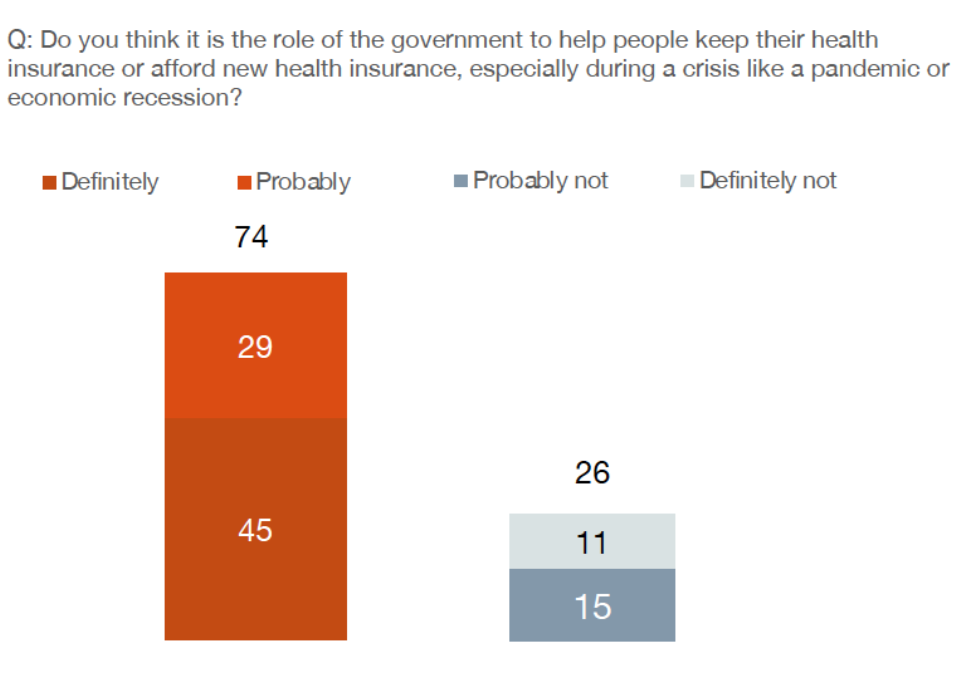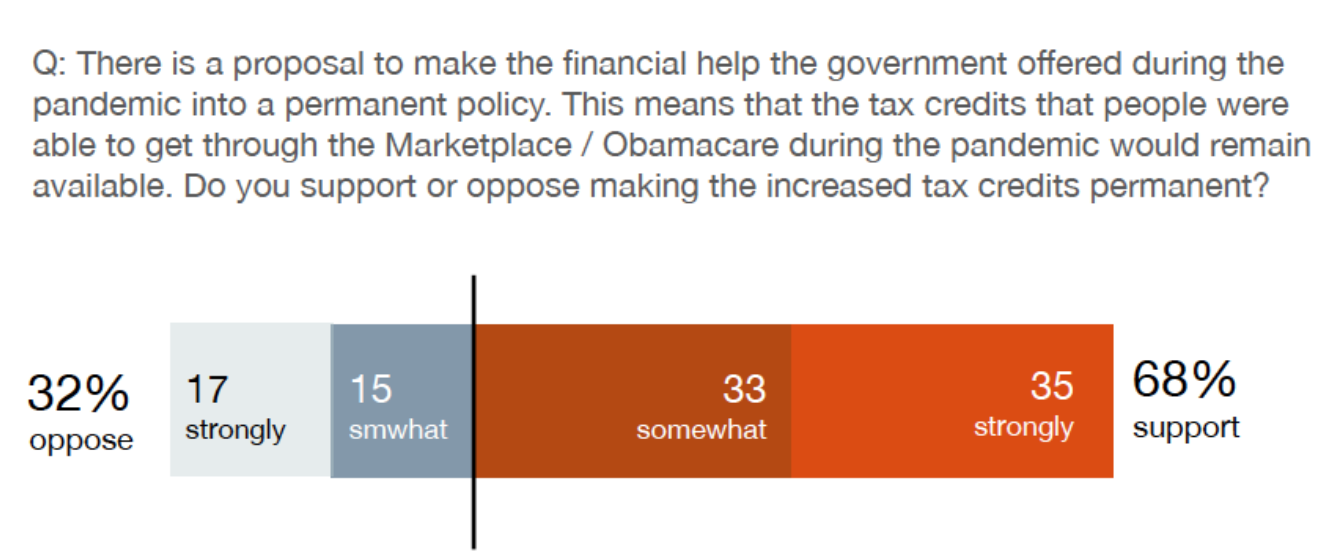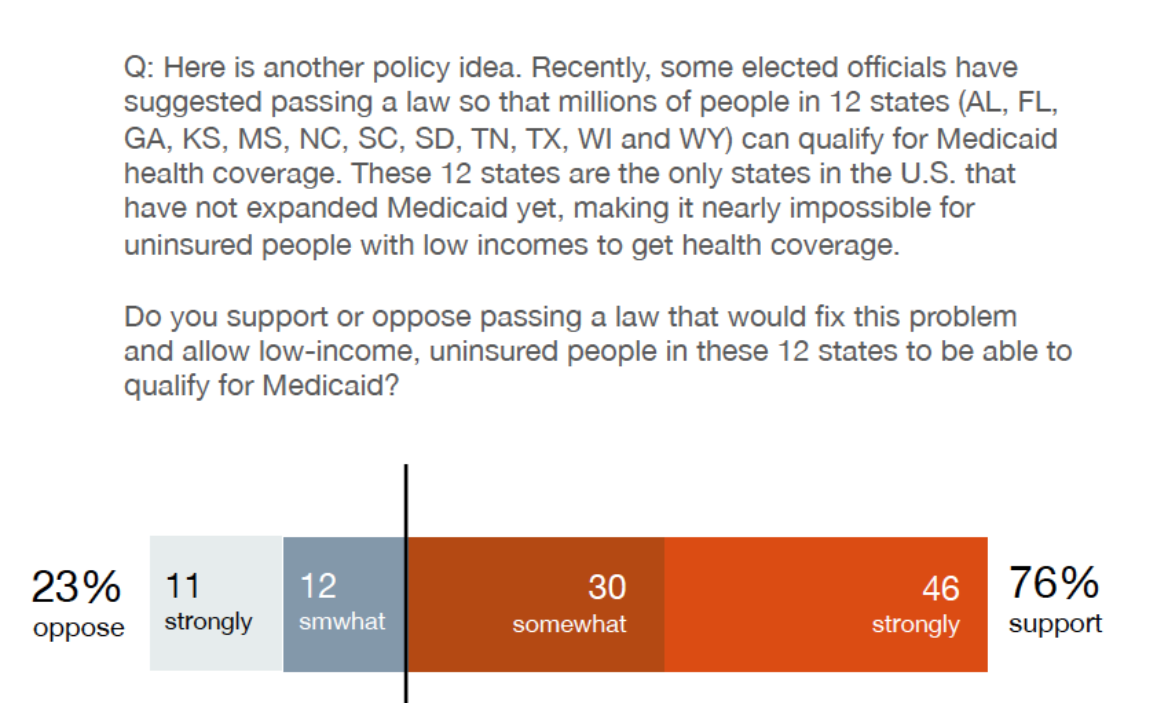News
New Survey Shows Voters Are Struggling with Inflation, Negatively Impacted by High Healthcare Costs, and Supportive of Policies that Expand Affordable Health Coverage.
July 2022 – A new survey sponsored by the American Cancer Society Cancer Action Network (ACS CAN) finds many voters are tired of “just getting by” and worried about inflation and rising costs, including healthcare costs.1 Half of voters say they are putting off medical care or making other sacrifices to avoid incurring healthcare costs and 49% have current or past medical debt.
Voters are looking for relief from healthcare costs and there is bipartisan support for government action. Specifically, they want government to prioritize making healthcare more affordable and protecting people’s access to health coverage during this period of high inflation. This includes efforts to make health coverage on the Marketplace (Obamacare) more affordable, including making the increased premium tax credits passed during the pandemic into a permanent policy. There is also strong bipartisan support for Medicaid expansion in the 12 states that have not yet expanded the program. And when they learn millions could lose Medicaid at the end of the year when the Public Health Emergency is declared over, there is bipartisan support for states taking steps to help eligible people keep their health coverage.
Importantly, voters who have cancer or who have had cancer in the past are consistent throughout the survey in their support for policies that make healthcare more affordable and extend coverage to more people. They understand the importance of access to affordable healthcare and coverage. Following are key findings from the survey:
9 Key Findings
- Nearly 9 in 10 voters (87%) say they have been worrying about inflation and paying for food, gas, and other basic needs during the last six months. A similar proportion (85%) has been worrying about the economy and a possible recession. 4 in 10 (39%) voters feel they are just“getting by” right now, “not thriving.”
-
They are negatively affected by high healthcare costs. Half of voters (53%) say they are putting off medical care or making other sacrifices to avoid incurring costs and 49% has current or past medical debt. Of note, 43% of all voters say they are worried about going into debt because of medical bills in the next 12 months.
-
Voters who have cancer or who have had cancer support policies that extend affordable health coverage to more people. The vast majority (85%) want government to prioritize healthcare affordability and 81% want them to protect people so they don’t lose their health coverage during high inflation. In terms of policy, 73% support Medicaid expansion in the 12 states that have not yet expanded and 66% support making the increased tax credits available on the Marketplace during the pandemic into a permanent policy. Majorities of cancer voters also support states making extra efforts to ensure people keep their Medicaid once the Public Health Emergency ends.
-
They want the government to prioritize making healthcare more affordable. More than 8 in 10 voters (81%) feel this way (Dem 95%, Ind 73%, and Rep 69%).
-
 Most (81%) agree government should protect people so they don’t lose their health insurance during this time of high inflation. Majorities across party ID share this view (Dem 96%, Ind 74%, Rep 64%). Most (74%) see it as the role of government to help people keep their health coverage or afford new insurance during a crisis like the pandemic or an economic recession.
Most (81%) agree government should protect people so they don’t lose their health insurance during this time of high inflation. Majorities across party ID share this view (Dem 96%, Ind 74%, Rep 64%). Most (74%) see it as the role of government to help people keep their health coverage or afford new insurance during a crisis like the pandemic or an economic recession. -
Voters approve of laws Congress passed during the pandemic that helped people keep and afford health coverage. Specifically, three-quarters (74%) approve of the federal government increasing tax credits through the Marketplace that enabled people to keep their insurance or buy new insurance during the pandemic (Dem 92%, Ind 67%, Rep 57%).
-
Nearly 8 in 10 (78%) agree the government should do whatever it can to make health coverage on the Marketplace more affordable. Majorities of Democratic (96%), Independent (70%), and Republican (60%) voters agree with this idea. This is likely why two-thirds (68%) support making the increased tax credits on the Marketplace which passed during the pandemic into a permanent policy. Of note, voters say they are twice as likely to vote for a candidate who supports making the increased tax credits on the Marketplace permanent (more likely to vote for 51% vs. less likely to vote for 26%).

-
Three-quarters of voters (76%) also support Congress passing a law so that millions of people living in 12 states that did not expand Medicaid can qualify for affordable health coverage. This is a policy that has bipartisan support, with 95% of Democrats, 69% of Independents, and 61% of Republicans supporting this idea.

-
Voters want states to make an effort to help people keep their Medicaid coverage once the Public Health Emergency ends. For example, 78% agree states should take the full 14 months to conduct Medicaid renewals to avoid errors and give enrollees time to respond. In addition, 89% agree states should create a 1-800 number for people to call for help with the renewal process and 85% agree states should invest in awareness efforts beyond just sending out mailed notices (texts, emails, social media postings) to make sure enrollees know they need to renew their Medicaid health coverage. There is strong bipartisan support for all of these measures.
For more information, contact Greta Johnson, Associate Director, Grassroots Campaigns and Electoral Strategy, ACS CAN at 608.888.9643 or [email protected].
1 The national survey of 2,001 registered voters was conducted May 24 – June 8, 2022 by a bipartisan team of researchers from PerryUndem, Bellwether Research, and the Center for Advancing Innovative Policy (CAIP). This was a 22-minute national survey of 2,001 registered voters conducted online with YouGov. It was offered in English and Spanish. The margin of sampling error for total results is + 3.0 percentage points.